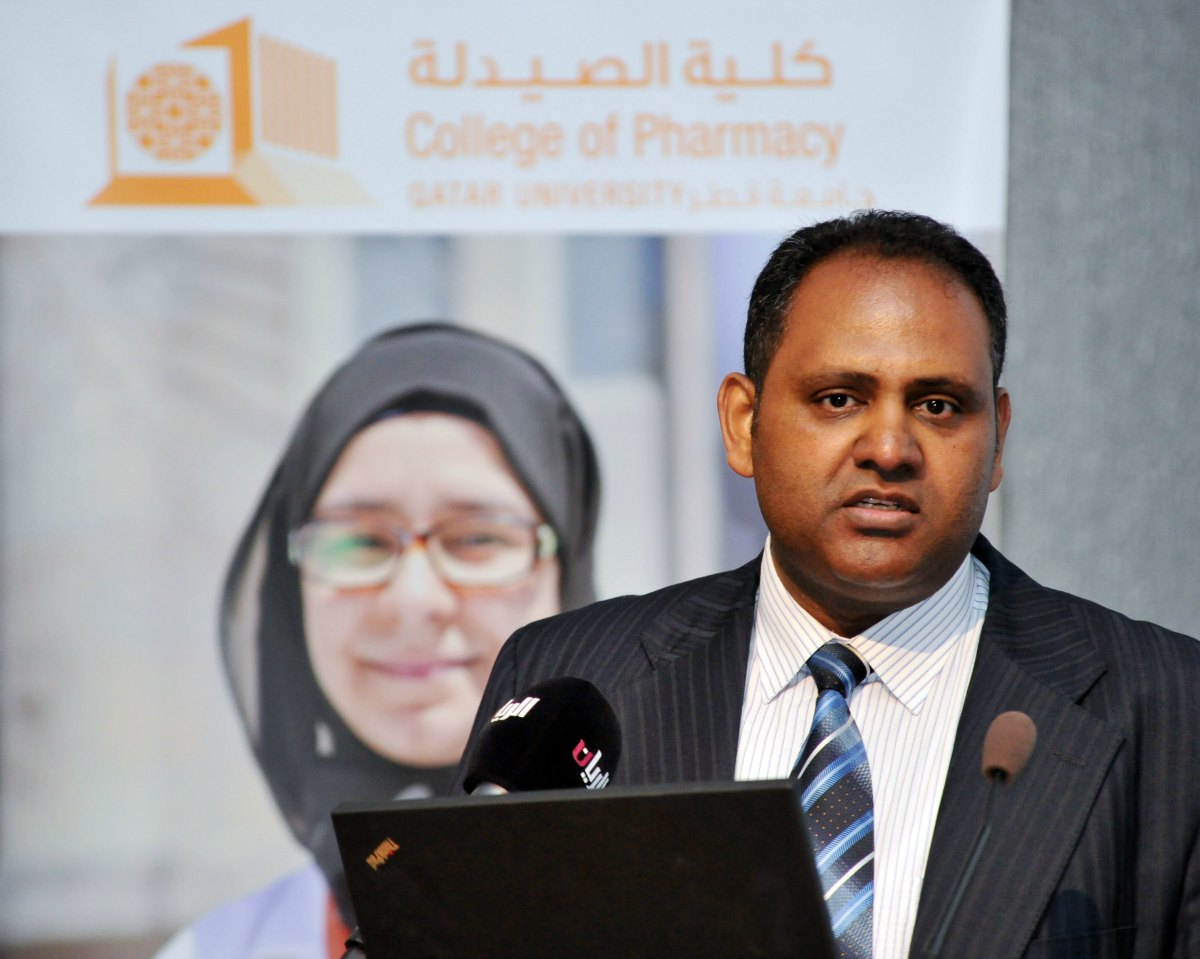
Faculty of Pharmacy and Pharmaceutical Sciences professor Ayman El-Kadi spent the past three years as dean of the College of Pharmacy at Qatar University.
Even though the Faculty of Pharmacy and Pharmaceutical Sciences has a strong and established reputation worldwide, professor Ayman El-Kadi and professor Cheryl Sadowski are working to strengthen that reputation in the Middle East, specifically in Qatar.
El-Kadi just returned from the small sovereign country on the Arabian Peninsula where he served as the dean of the College of Pharmacy at Qatar University in Doha for the past three years.
"The opportunity to gain valuable experience was great for me personally and the purpose for the move was to establish collaboration between our faculty and Qatar University," says El-Kadi. "The Middle East is a growing, emerging region when it comes to pharmacy education, so it was an opportunity we couldn't pass up."
After Qatar's previous dean retired, El-Kadi was approached to apply for the position and after consulting with then Pharmacy and Pharmaceutical Sciences dean, Dr. James Kehrer, El-Kadi made the transition in 2013.
El-Kadi notes that Qatar's College of Pharmacy is accredited by the Canadian Council for Accreditation, a designation he helped the college apply for and achieve. The college was previously granted conditional status.
"With an official working relationship, it's also an opportunity to take part in student and professor exchange programs and apply for joint grant applications," says El-Kadi. "We also help them get their accreditation, review their curriculum and serve as advisors to ensure they keep their accreditation status."
The University of Alberta has several connections to Qatar. For his part, El-Kadi arranged for three people - an Alberta Health Services employee and two post doctorate students in the Faculty of Medicine and Dentistry - to take part in an exchange program in Qatar. He also notes that five Alberta alumni already teach at Qatar University which has a student population of 17,000.
While in Qatar, El-Kadi along with current dean, Dr. Neal Davies and past dean, Dr. James Kehrer helped convene the first ever conference on interprofessional pharmacy education.
"Several Canadian students attended the conference and we plan to grow those events over the next few years to further develop pharmacy education in the region, including in other countries like Kuwait and Saudi Arabia," he says.
"Qatar's College of Pharmacy brings in expertise from all over the world with 60 per cent of faculty members being Canadian," says El-Kadi. "The Canadian accreditation is held up as a high standard - our reputation is strong."
One day, he hopes Qatar University's pharmacy students will come to Edmonton to complete their rotations - practicums in clinics or retail pharmacies students are required to complete between class terms.
El-Kadi says Qatar and other universities in that region look for international partners for grant applications and the Faculty of Pharmacy and Pharmaceutical Sciences is poised to collaborate in those applications in the near future. He says other universities like the University of Kuwait are starting to look at the Qatar College of Pharmacy model he and others helped set up and they want to seek the same Canadian accreditation. "Kuwait University's College of Pharmacy was founded by a former University of Alberta professor, so there's a history of connections between our two institutions," he says.
Pharmacy and Pharmaceutical Sciences professor Cheryl Sadowski recently took part in a joint research project with assistant professor Monica Zolezzi, a colleague at Qatar University. The two faculty members, who share an interest in geriatric pharmacy research, supervised a study looking at geriatric pharmacy curriculum and specifically how it is taught and perceived in both countries. Zolezzi received her master of pharmacy degree from the University of Alberta.
"Technology enabled us to complete this international project. Using Skype and email, we were in touch regularly with the two Qatar University pharmacy students doing the research," says Sadowski. "The students were very interested in how pharmacy education is taught in other countries like Canada, and how older adults are cared for."
"The demographics are very different in Qatar, with less than one per cent of the population over age 65, while in Canada that is 15 per cent," Sadowski says. "In Qatar, it is quite rare for an older adult to be placed in a nursing home, or an institutional setting. As researchers and educators, Dr. Zolezzi and I were interested to find that both schools could be doing more to teach geriatrics, but that has to be in context for pharmacy practice in each country. We plan to share our research at pharmacy and education conferences in the coming year. Projects like this allow us to reflect on our own teaching practices and curriculum, while establishing these international relationships. It was a great experience for both universities, and our curricula will be better in the future."
El-Kadi will continue to serve as a member on Qatar's International Advisory Board ensuring the University of Alberta's contribution helps build on the success of the program.
Although they are more than 11,000 kilometres apart, building relationships and respect between the two universities is bringing them closer together.